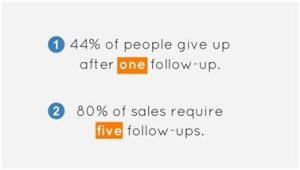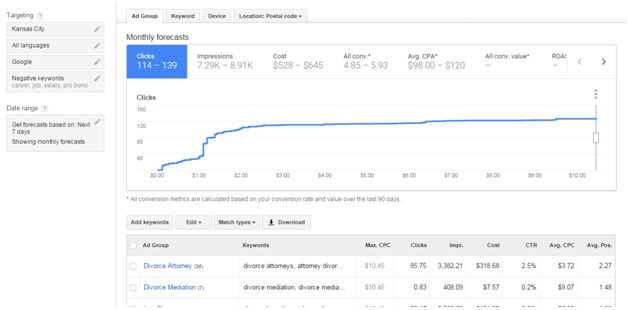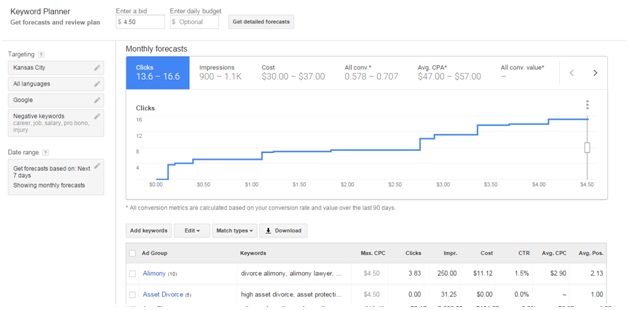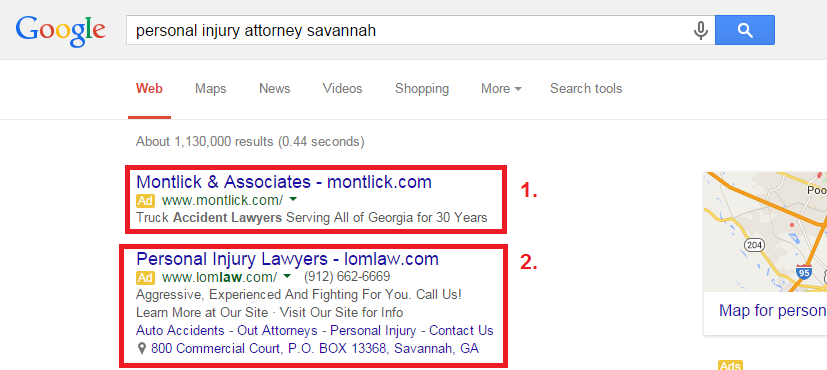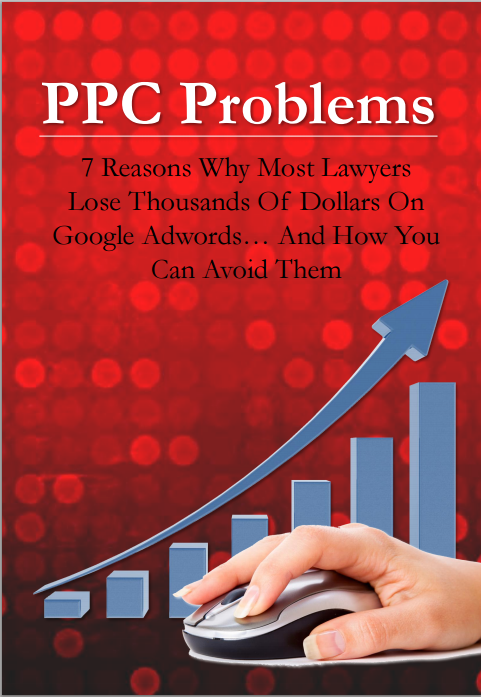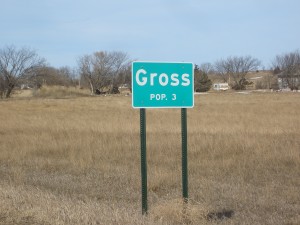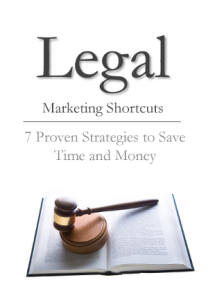Money vs. Time and how this affects your choice of marketing
If you’re a geek like me, you’ve probably played Settlers Of Cataan.
For the benefit of those who got dates in highschool, the game involves trading resources to build cities on the game board. What makes it interesting though, is that the amount of resources are determined at random by both the board configuration and what rolls of the dice end up coming up.
In one game, there might be an abundance of wood and no clay. In another, clay might be as common as the dirt it is, and the person who controls wood might control the economy.
It’s a great illustration of the principles of supply and demand. You need to work with what you have an abundance of.
You have resources like this in your law practice too. And they also change with your circumstances.
When you’re starting out, it’s likely that you have more time than money. You aren’t booked up with cases, managing junior associates and all of the rigmarole of running a big practice. When you end up having to do all of that stuff, you are most likely going to have more money than time.
Sometimes you have neither (we’ll get into this later). But we’re going to assume that you have one or the other if you’re reading this article, which will help you decide what to invest in if you want to build your practice.
More time than money
I remember starting out here when I built my first business in the nutrition space. We had won a grant from a business plan competition, raised some money and had to promptly spend it all on our first lot of inventory. We had close to half a ton of product sitting on a garage and nothing but time to move it with.
Thankfully, I was pretty well acquainted with a number of marketing channels at the time that had time as their major input. Here are some of the things I worked on before we ended up getting
- Writing 5 articles per week for a blog that ended up getting to a pagerank of 2, back when that meant something (Content marketing/SEO)
- Building up an instagram channel to several thousand followers (Social Media)
- Getting PR placements in some of the top outdoors blogs (PR)
- Direct selling to major retailers that could have covered our product (Sales)
- Partnership outreach to every triathlon coach in the US (Networking)
Needless to say I was a pretty busy guy! I was generally waking up at 5AM most days, taking breaks only to eat and go to the gym, and wrapping up around 7PM. I wasn’t pulling that long of a schedule on the weekend but I wasn’t relaxing either.
This is the life you have to live when you have more time than money. If there is any time that motivational quotes make sense, it’s this stage.
Things are slightly different for the small law practice but the general principle is the same. First, you’re limited in your channels. The focus of most small practices has to be on networking, content marketing and the associated downstream stuff like SEO and PR. Second, you are actually WORSE off because success means even more demand on your time!
Choosing your channels
As someone with time, you’re limited in the channels you can work with. I highly recommend law firms (and all small businesses for that matter) focus on exponential channels when they are in this phase.
Take it from someone who has made the mistake before – you can’t make $100 of ad budget perform like $1000 by working 10X as hard. You’re going to go crazy and probably lose it all. Data is the name of the game when it comes to linear channels like PPC and you’re going to be reading tea leaves if you don’t have enough.
Back to what you CAN do though.
Attorneys with time need to network. Groups like BNI and resources like meetup.com make it possible for anyone outside of the sticks to go to a different event every night. Your partner might hate you but it’s what you have to do when you’re getting started out.
The good thing about networking is that the sales cycle is really short when you get a warm referral. It can potentially turn into money very soon.
If you’re not a fan of handshakes and business cards, or want to do something when it’s not happy hour, content is the gateway for the channels you’ll have an advantage in.
These days, content is the grist that powers pretty much every organic channel from social media to SEO to PR. Publishing articles for google to show in search has been around since the beginning of time and has actually become more popular since black hat tactics like link building have become more challenging to implement.
PR requires something to promote, and if you’re writing enough you can have plenty and/or high enough quality stuff to submit to journals, calls for experts like HARO.com and industry blogs. This can either be client facing or serve the same purpose of networking – being the expert in the eyes of other attorneys.
Finally, if your wit is sharper than your attention span, you can make a go at social media. There is a certain amount of distraction you need to allow into your life to be responsive on social media, but things like linkedin groups can be a great way to syndicate your content and get distribution if you can find the right ones.
Escaping the tyranny of the clock
The trouble with any service business is that success is actually worse for your time. If your case flow is dependent on you being out in the world/writing articles/endorsing people on linkedin, you’re going to suffer when you’re actually doing, y’know, what you got your JD to do.
Sometimes people focus on client work at the expense of their pipeline and have to start hustling again from a dead start once the work is complete. Sometimes people end up working themselves to the bone, losing sleep and aging years at a time. Neither is good.
This is the tyranny of the clock. You’ll never have more than 24 hours to give to time dependent channels.
Thankfully, if you do happen to be booked up it should mean that you are now in camp 2.
More money than time
When we finally had enough money to pursue paid efforts, we did. The winning channels ended up being facebook lead generation and email marketing on one side, and investing into building up our organic ranking on amazon. In a few months, we were making double what we had done in our best month of hustling on less than 5 hours a week.
You can do two things with money. Invest it directly into linear channels, or convert it into time through hiring people and investing it into exponential channels. Your choice on which one to pursue depends on your choice of payoffs.
The important thing is to do it soon so that you can escape the tyranny of the clock. Time will never turn into more time, but money can turn into more money.
Look, you can totally ignore this advice and keep on hustling at networking events and writing articles. You might have the fortitude to book yourself up once before starting again or five times. Or if you’re a tough guy you can keep doing it for the rest of your life (which probably won’t be long because of the stress).
Your committing yourself to low level work. The salespeople you’re shaking hands with at those networking events are probably making around $15-20 per hour adjusted, as are the content marketers that could be writing your articles.
Since you became a lawyer, your time has been worth hundreds of dollars. And with a bigger pipeline, you can raise your prices (no joke).
So the question is, when are you going to get off the treadmill?
If you’re smart about it, there are companies that can get your results for under $5000. We happen to be one of them but don’t feel obligated to work with us.
The important thing is that you avoid suffering for suffering’s sake. There is a promised land out there, and you can get to it.
When is my marketing going to start paying off?
In theory, good marketing is selling money at a discount. You spend X, you get 2X, you’re a happy camper.
The big question is when exactly that 2X comes back.
If I traded you $5 for $1 today, would you be happy? How about $5 in a year from now? Questions like these are baked into every marketing decision you make whether you know it or not, and very few people ask them.
So without further ado, let’s get started with the two major different types of payoffs in the world of marketing.
Arbitrage vs. the snowball
Apologies in advance if this graph gives you flashbacks to your highschool algebra class, but we’re going to need it for the next little bit.
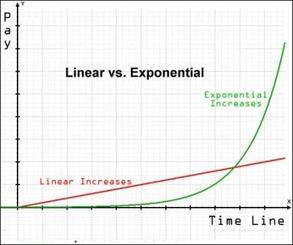
Believe it or not, almost every kind of marketing in the world can boil down to one of these two basic models.
On the linear side we have the direct response channels: direct mail, pay per click advertising, and sales
On the exponential side we have the rest: social media, SEO, content marketing, brand advertising
Neither is better or worse in theory. But the payoffs are different.
The strength of linear channels is speed. You could book a case your first day advertising on google adwords (we typically see leads come in within 72 hours).
The weakness of linear channels is linear costs. You’re never going to get 100x the eyeballs without paying 100x as much for ads, of any sort.
The strength of the exponential channels is outsized returns. You could publish an article that “goes viral” and ends up getting you 100 inbound leads in a day.
The weakness of exponential channels is that they start slow. You’re never going to reach an audience in your first 72 hours on social media.
See how this gels nicely with our graph above? Up until position 8 on the graph, linear is beating the pants off of exponential. But once exponential gets things going, it crushes the linear channel.
Theory vs. practice
Up until this point we’ve been speaking purely in mathematical ideals. When the rubber meets the road for a small or solo law practice, things are pretty different.
First, unless you have more time than money, exponential channels can get pretty cumbersome. Retainers for content marketers, social media or SEO can get pretty healthy, in the $1-5000/month range. Because of the nature of things not turning out for a while, contracts of 6-12 months are generally required.
Do you have 6 months of runway to let your money start coming back?
Maybe you do, but if you’re paying a social media firm $2000 per month for 6 months before things start to work out, that’s $12000 that you’ll be out before you see how things work.
Second, there is no guarantee that the kind of traffic you’re getting from an exponential channel will be qualified to turn into cases for your firm.
Quick story: a recent client signed on with Expert Engines to generate leads for traffic tickets. She had done extremely well with these leads through networking. However, after generating half a dozen leads in the first few days, we realized that there was intense price competition.
She had a premium, service oriented practice but people on google just weren’t ready to pay more for it. We spent all of $100 on ads to find this out and were able to pivot to another practice area of hers.
Imagine what it would have been like if she had found this out after investing $12000 in SEO? That’s the risk of betting on exponential channels as a small business.
The worst part is, due to the sunk costs you’ll often see people holding on for things to finally ‘turn around’. Month after month goes by with no results, but they figure that they’ve spent so much that to stop would waste it all.
And they’d be right! For most channels, the flywheel stops turning when you stop paying to have people push it.
Why linear is a great fit for small and solo law practices
We’re almost certainly biased, but linear channels are a great fit for small and solo practices. The time-to-results has three super important implications
First, the risk is greatly lowered. At the time of writing, one month with Expert Engines is a total of $3500 ($2500 of which is refundable for qualifying practices). You can figure out whether you have a channel that pays for itself for $1000.
The fact that we can even offer a guarantee like this is a function of the time-to-results. Exponential channels could never do this, the labor costs of months and months of work are just too much.
Second, linear channels can pay you. And they can pay you fast. One of our recent clients was able to sign his first retainer by the end of the first month, covering our service and ad costs handily.
From a cash flow perspective, he essentially ‘found’ thousands of dollars without any investment. It doesn’t happen every time but we aim for it with every client.
Third, linear channels can pay for exponential channels. In the example above, our client could take that money to the bank, reinvest it into more ads, or even go ahead and hire an SEO firm to boost up his site in the long run. As long as the PPC keeps delivering, he’ll have clients to keep the lights on for the whole operation.
How To Lose Your Marketing Budget – 3 types of companies for Law Firms to avoid
I’ve always hated the word ‘marketing’.
It’s such a broad and all encompassing term. People who design logos for five bucks on the internet and people who conduct million dollar customer research for fortune 500 companies both can (and often do) call themselves marketers.
Ironically, one of the first lessons of marketing is to own a specific niche. Looks like most of them aren’t following their own advice.
As someone who’s been on both sides of the table when it comes to hiring a marketing company, I’ve pretty much seen it all. I’ve personally hired some of these, competed against others, and been responsible for cleaning up the mess others have made.
Here are the three big categories of marketing firms to stay away from if you want to get any sort of return on your marketing budget
1. “Big Marketing”
These firms have a 10-30 year history and a list of clients that include successful corporations you will recognize. They almost always live in big cities and typically have really nice offices stocked with dozens of well-dressed young professionals who can all deliver a textbook three-pump handshake with a confident smile.
They are every bit of the advertising company you expect if you watched the show Mad Men. They probably do excellent work for their corporate clients. So why should you stay away from them?
In a nutshell, companies like this are extremely expensive and not focused on immediate ROI. Those gorgeous offices? Those slick, young urban account managers? Coming out of your retainer, which I have seen as high as $10000 per month to start out (excluding ad budget).
For the most part, these companies do not deal with small business owners like yourself that are paying for marketing and their mortgage out of the same checking account. They interface with big companies who have marketing expenses as a line item in their quarterly budget. They work with people who have a salary that will not go away if the campaign isn’t profitable.
An important distinction to make is that these companies exist to spend budget. If you’ve ever done time in the corporate world, you know that a budget that doesn’t get spent is reduced the following period. These companies will spend the entire budget, every time, regardless of whether the second half was bringing in pennies on the dollar compared to the first.
They also focus on fuzzier campaigns like branding and awareness, which can work well for big companies over the span of years or decades, but are not likely to turn a profit within the first months (or years) of your relationship.
2. Jack-of-all-trades digital shops
Let’s start with a brief history lesson.
The first web agencies started up in the late 90s as the internet became mainstream. At the time, having a website was all that you needed to be visible, since there wasn’t any competition. These web designers were happy and so were their clients.
Things started to change. Google launched this cool product called adwords in 2000 with 350 advertisers. If you knew that there was such a thing as adwords before 2005, you were basically in the top 5%. Clicks were dirt cheap and you didn’t have to be particularly good at anything besides showing up to get a return for your clients. The design agencies added “PPC” to their services list.
Adwords started to get tough. As more people came in, the “ham and eggs” agencies that were just setting up adwords accounts got flushed out. It became an arms race between the serious advertisers that continues to this day
SEO started to get big. Again, things were less competitive. You could do easy things like stuff keywords in the code of your page and show up for whatever search you wanted. The design agencies added “SEO” to their services list.
Google realized tricks like this and made it harder, and SEO people figured out tricks to beat the new rules. It became an arms race that continues to this day.
Starting to get the picture? We could keep going for trends like social media, content marketing, and others. Something new comes up, people jump on because it’s trendy, and then the market passes them by.
Almost every “full service digital marketing agency” older than 5 years follows a similar path. As you progress you’ll find ones that got their start in SEO or social, but the reality is the market for any service online is hyper-specialized and competitive.
Here’s another dirty little secret – many times they have no such expertise in house. Platforms like upwork and elance allow “full service agencies” to take work that is way out of their specialty, and subcontract it out to freelancers (more on this later).
When it comes to managing a PPC budget, you CAN’T have someone who is half in the game. You need to treat your PPC budget the same way as your treat your life savings (because as a small business owner, it comes from the same pool).
You wouldn’t want your financial adviser to catch up on the markets part-time, right? You want someone who eats, sleeps and breathes finance. It should be the same with PPC.
3. Ex-agency PPC freelancers
There are a number of ex-agency guys (big marketing or otherwise) that end up striking out on their own to become PPC freelancers. Within the agency, they were probably responsible for managing the adwords account with the support of a web designer for landing pages (if any) a designer for banner ads and a copywriter for ad copy.
Taking someone like this out of their support network is extremely dangerous. Because they are extremely good at the wrong part of the equation.
The yin and yang of lead generation is paying for traffic, and converting that traffic in to leads and business. To get this to work, you need everything from market research through adwords, ad copy, landing pages and analytics to work together in harmony.
Taking adwords out as a single piece basically gives you the ability to send google money. Unless they happen to also be a killer conversion expert and copywriter (extremely rare), you are basically paying for the privilege of spending money faster.
The thing that is particularly insidious about this kind of freelancer is that they usually have a really good reputation with google. They usually have google certifications in adwords, and might have awards. I once worked with a top 5% adwords advertiser that have literally been flown out to Google Headquarters for awards – and gotten HORRIBLE results.
Why? Google defines success by increasing ad spend, and these people are effective at doing that. The google certification is to generating returns as your business as a driver’s license is to competing in formula 1 racing. It’s a first step, but no guarantee of performance.
So what SHOULD we look for?
I’ve laid out a lot of dirt from behind the scenes in this article, but there is hope if you want to hire out for PPC. Look for these three things when it comes to hiring out for your PPC needs.
- Specialization – have an agency that focuses on online advertising specifically. No web designers that throw it as an add-on or SEO shops that do the same.
- Size – Big companies make you pay their overhead. You are also less likely to work with someone who has a personal stake in the success of your campaign. A proprietor of a small shop cares a lot more about your success than a faceless college grad who is going to make their $32k salary managing 150 accounts regardless of whether 20 of them fail or not
- Understanding of direct response and copywriting principles – Where I’ve been impressed by my competition, it’s usually people who come from a copywriting background. This is the core skillset of getting people to convert to clicking an ad or giving you a call, and if they learn traffic like PPC it can be a dangerous combo. The only problem is that they usually know it, and copywriters with the juice can get extremely expensive.
I hope this was a helpful guide. If one person can read this and avoid a costly investment of time and money into one of the three types above, we can feel good.
How the best law firms turn lead generation into new cases
Running a company that provides lead generation, I see a wide range of performance when it comes to clients being able to close inbound leads. While it isn’t something that we (technically) provide as part of our service, it’s something we have a vested interest in because we don’t operate on contracts.
We need our clients to be successful in closing the leads they get, otherwise it doesn’t matter if we’re doing our job.
Thankfully we know a thing or two about sales. I was closing $100,000 data center deals by the time I was 22, and have sold $30 consumer products at trade shows. To date I’ve taken training from 3 companies with a billion plus in revenue including one of the top 3 consensus training programs in HP.
So with that perspective in mind, here’s what I see working and not working when it comes to our legal clients closing leads and making money
1. Mindset is everything
We have (no joke) seen clients that have pulled cases out of <10 leads per month as well as clients that have failed to post a single case out of 50 calls in a month. Funny enough, the closer was no more hungrier or junior than the one that couldn’t close, as one would expect.
He had a better mindset.
If you’ve ever seen the movie Glengarry Glen Ross, you might remember this classic scene with Alec Baldwin:
One of the more quotable lines in sales organizations is “the leads aren’t weak, YOU’RE weak”. Now we wouldn’t have many clients if this was something we ever said, but it’s an important thing to take a look at. And it happens to line up with one of the most illustrative theories of 20th century psychology, attribution theory.
People who attribute things externally place the responsibility on outside factors. These people get pulled over because the police have it out for people who drive an Audi. People who attribute things internally place responsibility on themselves. These people get pulled over because they decided to hit snooze 3 times and had to speed to get to the office on time.
In the case of not closing, external attribution = the leads are weak, internal attribution = you are weak.
What’s the difference between how each of these people will deal with a lead?
If you expect a client to be bunk, you won’t be giving them a good consultation. You’ll be trying to get off the phone because it could take your time. You won’t be on the ball with following up quickly (more on that later) or following up at all.
Someone with internal attribution will give it their all. They treat every client like their next biggest case until they give them a reason not to. They interpret questions like “how much are you per hour” as buying signals, not objections.
What mindset do you think will be better for the cases that are on the fence?
Both of these will snowball. Confidence breeds more success and more confidence, withdrawal breeds more failure and more withdrawal. People make this work every day, and there’s no reason you can’t! Believe in yourself when you pick up the phone and you’ll end up making more on your cases.
2. The 900% increase you’re probably leaving on the table
You won’t always be there when a lead comes in. As a lawyer, you might be on trial, with another client, or a myriad of other situations. It’s ok not to have 100% availability.
What’s not ok is waiting longer than you have to when it comes to following back up.
One of the most comprehensive studies on lead response, conducted at MIT, showed some pretty breathtaking results. Tracking over six companies and one hundred thousand calls, this is the largest data set ever recorded on the subject.
Responding to a lead within 5 minutes showed an incredible 900% increase in closing versus leads that were contacted 3 hours. And they showed a 400% increase in closing compared even to 10 minutes!
There are three takeaways to be had here:
First, make sure you have a system to let you know when leads are coming in. We have emails and text messages sent to our clients when they get a lead from one of our campaigns to facilitate this sort of follow up
Second, make sure your leads are only coming in when you are able to take them if at all possible. There’s no point in running ads at 3AM if you aren’t going to be able to take the call.
Third, call back as soon as humanly possible when you have the option. It’s easy to procrastinate on these things, but your results will be much better when you get the jump on even 5 minutes versus 10.
3. “The fortune is in the follow up”
Some of the biggest companies in the world today like salesforce.com make billions of dollars helping people follow up on leads. The reason why companies shell out the big bucks for these is because they make tens if not hundreds of billions in being able to follow up on leads.
Now, I’m not suggesting you go out and spend hundreds of dollars per month on a fancy customer relationship management system. The lesson to be taken here is that follow up is incredibly valuable.
Old school sales gurus love to throw figures out like this:
As a law firm, you don’t have to push through no’s, follow up hundreds of times or any of the other masochistic stuff that the old gurus suggest. Plain and simple, people are calling because they need your service.
But I would probably agree with the first point, that 44% of people give up after a single follow up.
Sometimes you’ll get a voicemail. Sometimes they won’t respond to an email. That doesn’t mean that the lead is dead or was never good to begin with. All other things equal, follow up is one of the most profitable activities you can do because you’ve already paid for the lead.
It’s infinitely cheaper to get cases out of what you have than to pay for more advertising and more leads. Keep track of people who haven’t responded (it can be simple as a note on your iphone) and go down the line when you have 5 or 10 minutes free between appointments. Five follow-ups is probably a bit much, but we recommend our clients to follow up at least 3 times before letting a lead go.
It could mean a new case for your practice.
4. Someone needs to own it
Marketing to generate leads is not cheap and it’s not easy. So it’s almost tragic to see leads get washed down the drain because of simple errors of organization. This tip is doubly relevant if you have multiple partners working your leads and/or if you use shared office space with a secretary.
When there is a single attorney, no doubt exists on whether something is happening with the lead. Either you, personally are attending to it or it’s not being attended to. When you have a number of partners balancing their own complex schedules, it gets a little fuzzy.
We’ve seen dozens of leads fizzle out when partners each think the other is taking care of it.
In most cases, the best move is to have one person take responsibility for following up on leads. There’s no doubt this way and your leads will get the attention they need. If you are generating leads for multiple practice areas and one person can’t handle it all, set up call forwarding so that the best attorney for the job is getting those leads, and make sure they are 100% responsible for it.
Another issue is letting the secretary (especially in a shared space) delegate who gets the leads. Sometimes this is not done properly, feeding into the issue above, or sometimes it’s done in a way that ruins the client experience.
We provide recordings for all of the phone leads we generate for clients, so they can listen to the process their front desk is following. Take notes! This is the first interaction they have with their law firm and can affect the tone of the relationship to follow, or whether one is made at all.
5. How your mom’s advice can get you cases
This is a super tactical tip but one that we see all the time, especially in the beginning. When you start receiving leads to your cell phone, they are always coming from an unknown number. Many of our clients (especially those in fast moving cities like NYC) will answer the phone with a skeptical “Hello?”
For someone looking to solve a pressing legal need, this is NOT what they want to hear!
It’s very simple, but if you can get into the habit of answering your phone with the following formula, it will set the tone for a pleasant and professional conversation.
“Law Office of [XYZ], [Name] speaking”
If they don’t introduce themselves immediately, following up with “May I ask who’s calling?” is how we recommend following that up.
It’s in your hands
You don’t need to be the world’s greatest salesman to get an ROI on your lead generation campaign. Thankfully, the biggest holes are usually the easiest to close. If you can implement even one of the tips above and change your close rate from say, 10% to 20%, the effect to your bottom line will be the same as if you had doubled your budget.
Now get out there and win some cases!
Will Adwords work for my Law Firm? Part 1: Search Volume and Relevance
So it looks like things are getting serious. You’ve done your homework and have realized the potential of getting hot leads calling your phone within days using platforms like google adwords.
It’s exciting. It’s scary. It seems too good to be true. Is it?
The fact is, not every law firm is a slam-dunk for google adwords. That’s why we take a hard, objective look at all of the data we can before we recommend moving forward with it. The first step in the process is looking for traffic
How (and why) Google provides search data
As of 2015, Google has 60 billion reasons to make getting into search advertising as easy as possible. One of the ways they do this is by providing keyword data. You can think of the Google Adwords Keyword Tool as a little window into the giant computer that powers adwords (and 80% of Google’s revenue).
Every time you make a search, google records it and sends it back to that computer. Billions of searches per day are recorded with three primary data points:
- The search term entered into google (the keyword)
- Where the search is being made from
- What eventually ends up being clicked
It’s a quick interaction, but you can get a lot of information based on those three data points. What this means for potential advertisers is that you can get a pretty accurate estimate of how many searches are happening for whatever keyword you want in whatever area you want.
Take a moment to let that sink in. You can know whether there is an audience for your campaign in your exact area before spending ONE DIME on google adwords.
Putting the data to work
Let’s say you’re a divorce lawyer in Kansas City considering whether google adwords is right for you. After coming up with a list of keywords (your adwords expert can help out with that), we can plug them into the google adwords keyword tool and set the location to Kansas City.
In the end, you’ll get a picture that looks something like this:
(At ExpertEngines, we actually send images like this directly to clients)
What are we looking at here?
This is google’s estimate of how many searches will be conducted in Kansas City for the basket of keywords that we’ve put in. This is based on real data from actual searchers for terms like this in KC.
The curve represents how many times your ad would be shown to these searchers. This is known as an ‘impression’ in Google-ese. The higher the bid, the more likely it will be that your ad will show (but we’ll get into that later).
The important thing to look at for this part of the process is the total amount of impressions. As we can see at the top, we are between 7290 and 8910 searches for divorce law keywords per month.
Volume vs. relevance: the fundamental tension
Here at Expert Engines, we use 5000 searches per month as a rule of thumb for a market being big enough. Larger is fine, but smaller than that is not likely to yield the amount of clicks and calls that make hiring a company like ours worthwhile.
This example seemed to work out, but let’s take a look at one that doesn’t
Let’s say that you were super picky and only wanted to do high net worth divorces and divorce litigation. No judgements here, who doesn’t like the big money clients?
Take a look at the quick and dirty impressions report we get from google
As you can see, the search volume is much lower. Around 1000 people search for this per month in Kansas City. It’s not enough volume to get a solid campaign going. Turning this on would yield some patchy clicks and one or two calls per month if you were lucky.
So what do you do in this situation?
You can always get more searches on google. As we’ve seen, there are literally billions of searches happening a day. But only some of them will be worth it to your law firm.
You can go broader geographically. Maybe you can expand your High Net Worth Practice to the entire state of Missouri.
You can go broader with your keywords. By using broad match types, you can let google pick some synonyms for high net worth divorce. Or you can go after general divorce practice and have ads about high net worth divorces only.
Both of these have their drawbacks. If you’re targeting people far away geographically, you’re less likely to convert because that person knows they might have to drive 2 hours to reach you. If you’re targeting people with broad keywords, your ads will not get clicked through as much because they don’t match as exactly.
The cases might pay well enough that neither of these matter from an economic perspective (more on this later)
That’s the fundamental tension of adwords – get enough traffic, but make sure it’s the right traffic.
Next steps
Wouldn’t it be cool to see how the competition was doing? With today’s tools, you can find out exactly what they are bidding on as well as how much they are spending.
Some of these signals are green lights, and some of these are red lights. We’ll get into it in the next blog post in this series. Stay tuned!

This Simple Tweak Could Save Your Law Firm Thousands On Your Adwords Budget
There are two things you always hear from lawyers about adwords.
The first: “We tried google adwords and it doesn’t work”
Since the platform came out around 2000, law firms have given google adwords a try and lost money by the click.
Yet, if you google the word “lawyer” in your city and see someone’s name come up, there is a good chance it’s working for them. There’s no contract involved, which means anyone can turn it off at any time if it isn’t delivering the goods.
So does adwords not work? Or is something else at play?
There is a lot of pressure to figure out platforms like google on your own. But it’s an extremely complex system that even full-time advertisers with years of experience learn new things about every day.
There are a million ways to die. If you can figure out how to avoid them, you can get access to a profitable channel that works to deliver you leads 24 hours a day, 7 days a week.
If you figure it out, you can be the subject of the second thing you hear lawyers say
“Yeah, firm XYZ is doing well, but you know they get all their cases from adwords…”
There are free ways to get more than double the ‘real estate’ on your google ads, and most lawyers don’t take advantage of them.
Case in point – using ad extensions.
Take a look at these two ads:
Same keyword, similar ad copy, but a completely different impression based on the extensions they are using. I would bet dollars to donuts that ad #2 is getting twice the clicks that ad #1 is.
First, ad number 2 is just plain bigger. It’s more likely to catch a browser’s eye.
Second, it provides more information. If I’m in Savannah, I know it’s a short drive over to Commercial Court where I can see these guys to take my case. Ad #1 could be in Atlanta, Macon or who knows where else.
Third, it provides a much better impression. With all of the detail and links, doesn’t it look like ad #2 has their ‘stuff’ together more? I want a thorough attorney if I’m going to be trusting them with my case.
Finally, it has the all important phone number! It’s possible that this ad is getting phone calls without even paying for clicks. Talk about a deal.
All of this for the grand total of zero dollars. These ad extensions are free to whoever knows how to use them, and they help you win over competition that doesn’t.
Like what you’re reading? There’s more where that came from.
Enter your email below for six more action packed tips to help you get more cases, spend less and beat your competition using adwords.

“Good Lawyers Don’t Market” and Other Myths that Keep Small Law Practices Small
“Good lawyers don’t market”
You hear it in law school, from your professors, and from other lawyers.
When you worked your first job after getting your JD, you became a lawyer. But when you made the jump to running your own practice, you also became a business owner.
And no business owner in their right mind would leave growing their firm to chance.
“Build it and they will come” is a strategy that stopped working in the days of Noah. These days, every business (including law firms) face increased competition and need a strategy in place to get ahead.
Do you have to? No. Feel free to run a mediocre practice without it.
But if you’re dedicated to growing your solo or small practice into a successful business, you need to break down the barriers to ethically growing your practice, and you need to do it soon.
Let’s get to work.
Origins of the myth
There was a time where lawyers didn’t have to market. Maybe your law professor was practicing then.
You ‘d move to the Northeast to get your JD, go back home to the small town you were from, and hang up your shingle.
As the town lawyer, you’d negotiate contracts, take care of divorces, draw up wills and a million and one other things that you, the only man of the law could take care of. You and the town doctor would make it rich as the only people practicing a profession in your small village.
Unfortunately, unless you happen to practice law someplace like this, that world no longer exists.
If you live in a place with running water, chances are you aren’t the first attorney to get there. And if there is even a basic standard of living, you HAVE to assume that there are other attorneys in your specialty that got there first.
Which means, if good lawyers truly don’t market, that you are about to enter a world of pain.
The tyranny of (hypothetical) meritrocracy
Imagine that your old law professor was right. We really do live in a world where the best person who practices the law in your field gets the case.
It wouldn’t be a world you want to live in as someone who owns a small practice.
You start out as bottom dog in the pack. The older, more established lawyers have a huge head start from day 1.
Because they are the best person, they will get pretty much every desirable case that exists in your area. Not only do they have a big lead, but they’re getting ahead faster.
Meanwhile, you can pick up a case here or there that falls through the case. The nutjobs, the pro bonos, the long shots that the big man on campus doesn’t feel like taking.
It reminds me of Soviet Russia or 1984. You wait for your handouts and you’re happy about it.
One day the big man will retire and you can enjoy slightly better pickings as the #2 moves into his spot.
After decades when you’re old and grey, you can enjoy your time on top for as long as you can muster. By this point the golf course has started to look a lot more attractive than your office. After all, you’ve toiled in the salt mines for long enough and deserve a vacation.
Sound like the life you want to live? Didn’t think so.
Thankfully there are other options, but those aren’t much better either.
“Acceptable” forms of marketing
For some reason, there are a handful of techniques considered kosher in the legal industry.
Networking, publishing articles, and public speaking come to mind.
Never mind that publishing articles and public speaking are known to the rest of the world as content or thought leadership marketing, or that networking is typically relegated to those even lower on the totem pole than marketers, salespeople.
For some reason, these are considered “sporting” ways to accomplish the task of bringing new cases to your firm.
Now I won’t say that these aren’t effective ways of getting new clients. I know many successful attorneys who participate in these all the time.
But the problem is they all share a common denominator – your time.
Every minute you spend writing an article, traveling to a conference, or shaking hands and handing out business cards is a minute you’re not billing clients.
Which means there’s a very real cost to “free” marketing techniques like this.
What’s worse, if your practice is dependent on these channels for new business, you can spend years being stuck at a plateau.
You aren’t getting more than 24 hours in a day. And you can only come home late from the office or a networking happy hour so many times a week before your friends and family start missing you.
It’s sort of like hunting.
Yes, you could go out into the woods and try to shoot a buck every few days to put food on the table. It’s honorable. It’s respectable work. But it’s exhausting.
And the worst part is, if you stop going out to the woods, you stop eating.
This is the reason most small law practices stay small.
You can’t build a village if you can only feed yourself. And that’s all you can really do if you’re dependent on time-based marketing.
So what do successful, growing practices know that small practices don’t?
How to farm.
Taking your practice into the modern world
Somewhere in your city, a potential client just made the decision to hire a lawyer in your field. How are they going to find you?
It might be that they were in the audience when you were presenting, or their family lawyer read an article of yours, or you happened to hand them your card at a business event. But it’s not likely.
To rephrase the question, how are you going to get in front of them? This is the answer that successful law firms have answered in a way that gets them enough clients to grow month over month and year over year.
Heck, they’ll probably get the client in your city that just decided to hire someone like you.
The answer lies in a discipline that’s been around just about as long as the formal practice of the law, starting in the late 1800s.
Unfortunately it’s called marketing. Specifically, direct response marketing.
Direct response marketing compared to time based marketing is like owning a farm compared to having to hunt. Successful firms are able to find out the fertile plots of land, plant their seeds there and harvest new clients when they are ready for their services.
Different marketing channels are like different plots. Some are rocky and take a while to yield, and some are fertile and produce abundant harvests quickly. And it takes a different skillset to be able to work each type of land.
If a particular plot is crowded, it might be harder to grow crops there. You might be better off on a plot that others deem too tough, and end up better off than those competing for the primo soil. It takes time or money to get started, but it can quickly put money and time back into your control.
It might all sound complicated, but the reward to figuring this out for your practice is having the means to grow in a way that is independent of your time. And more importantly, getting to the point where your farm pays for itself, and even pays for setting up other farms.
This is how successful law practices grow. In any industry, including law, the best marketers grow the fastest.
Your road moving forward
If you’ve made it this far, you are presented with a choice.
Stay the path, listen to your elders, and diligently hunt until the sun sets for as long as you have the energy.
Or go on a new path. It’s one less traveled and it’s filled with potential pitfalls, but at the end of it is having a successful, growing law practice with farms aplenty feeding it and your newly hired associates.
Now that you know, there’s no going back. So which one is it going to be?
I hope that you’ll make the choice to venture boldly on the road less traveled. It might be scary but you’ll know you made the right choice when you hire the first associate you wouldn’t have been able to otherwise.
—
Ready to take the next step?
Marketing can take years to figure out. If that’s not enough, it is VERY expensive to be wrong – I’ve spent literally hundreds of thousands with my own companies and clients to hone my legal marketing chops.
That’s why I took the best of what I’ve learned and boiled it down into 7 tips that you can use today to get a start on growing your practice. For free.
You’ll also receive exclusive content, access to free training and the latest tips for what’s really working in Legal Marketing straight from yours truly.
For the colorful.
Nullam tincidunt euismod eros. Nullam sodales, tortor vel lacinia varius, orci urna consectetur neque, sit amet accumsan lacus augue at eros. Nullam pellentesque vel mi nec congue. Donec sit amet auctor erat. In hac habitasse platea dictumst. Aenean arcu nibh, auctor vitae elit nec, ultrices auctor elit. Nam pulvinar dignissim leo eget egestas. Curabitur nec arcu mollis, ultrices lacus vel, mollis est. Nunc id elit metus. Suspendisse ac lacus ut lacus cursus euismod ut et felis.
N am id nisl mauris. Quisque auctor metus sit amet risus dignissim blandit. Fusce enim augue, ullamcorper quis urna id, condimentum laoreet mi. Vestibulum pretium consectetur scelerisque. In pharetra, lorem hendrerit congue placerat, eros risus molestie libero, fermentum rhoncus nisl arcu in dolor. Ut tincidunt felis ut sem varius, in interdum orci posuere. Cras aliquet malesuada leo, ut pharetra mi lacinia non.
Proin aliquet bibendum interdum. Donec mollis, nisl nec rhoncus porttitor, dolor lacus porttitor libero, non lacinia velit ante in odio. Morbi interdum facilisis orci, nec rutrum justo porttitor congue. Vestibulum pulvinar augue sit amet massa sollicitudin dictum. In elementum malesuada rhoncus.
Blue
Nullam tincidunt euismod eros. Nullam sodales, tortor vel lacinia varius, orci urna consectetur neque, sit amet accumsan lacus augue at eros.
Yellow
Quisque auctor metus sit amet risus dignissim blandit. Fusce enim augue, ullamcorper quis urna id, condimentum laoreet mi. Vestibulum pretium consectetur scelerisque.
Green
Duis in dignissim enim, id fringilla odio. Curabitur tincidunt a nisl vel pretium. Maecenas malesuada venenatis massa, quis molestie odio imperdiet a. Integer felis enim, accumsan vitae risus sed, tristique aliquam diam.

Nonsense Island
Autor Timothy J. Reynolds
Suspendisse blandit ligula turpis, ac convallis risus fermentum non. Duis vestibulum quis quam vel accumsan. Nunc a vulputate lectus. Vestibulum eleifend nisl sed massa sagittis vestibulum.
Suspendisse blandit ligula turpis, ac convallis risus fermentum non. Duis vestibulum quis quam vel accumsan. Nunc a vulputate lectus. Vestibulum eleifend nisl sed massa sagittis vestibulum.
Vestibulum pretium blandit tellus, sodales volutpat sapien varius vel. Phasellus tristique cursus erat, a placerat tellus laoreet eget. Fusce vitae dui sit amet lacus rutrum convallis. Vivamus sit amet lectus venenatis est rhoncus interdum a vitae velit.

